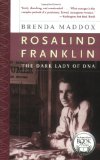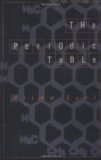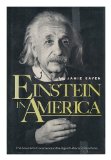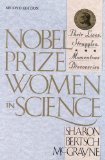When I look at the inventory of my favorite five science books—a list I compiled in a snap—I realize that all of them are biographical or autobiographical.
 Charles Darwin’s The Voyage of the Beagle describes in prose both lyrical and humorous his journey from England to Australia and back, and the animals and plants he saw en route, from sea slugs to the giant tortoises of the Galapagos. Of these latter animals, he wrote, “I frequently got on their backs, and then giving a few raps on the hinder parts of their shells, they would rise up and walk away.”
Charles Darwin’s The Voyage of the Beagle describes in prose both lyrical and humorous his journey from England to Australia and back, and the animals and plants he saw en route, from sea slugs to the giant tortoises of the Galapagos. Of these latter animals, he wrote, “I frequently got on their backs, and then giving a few raps on the hinder parts of their shells, they would rise up and walk away.”
 The Dark Lady of DNA, Brenda Maddox’s biography of Rosalind Franklin, relates the life of the woman who played an important role in the discovery of the structure of DNA but died of ovarian cancer before she could be awarded a share of the Nobel Prize for her work. It is one of the few books I have read that has moved me to tears.
The Dark Lady of DNA, Brenda Maddox’s biography of Rosalind Franklin, relates the life of the woman who played an important role in the discovery of the structure of DNA but died of ovarian cancer before she could be awarded a share of the Nobel Prize for her work. It is one of the few books I have read that has moved me to tears.
 The Periodic Table by Primo Levi—an Italian chemist who survived Auschwitz—is ostensibly a book about the elements, but it is interspersed with poignant tales of his own family and friends.
The Periodic Table by Primo Levi—an Italian chemist who survived Auschwitz—is ostensibly a book about the elements, but it is interspersed with poignant tales of his own family and friends.
 In Einstein in America, Jamie Sayen details the great physicist’s arrival in the United States in 1933, as a refugee from fascism, and the extraordinary lengths he went to in order to help other refugees escape Europe.
In Einstein in America, Jamie Sayen details the great physicist’s arrival in the United States in 1933, as a refugee from fascism, and the extraordinary lengths he went to in order to help other refugees escape Europe.
 Nobel Prize Women in Science is Sharon Bertsch McGrayne’s ode to the very few women who have won the Nobel in Physics, Chemistry, or Medicine. (At last count, that figure was a grand total of 15—including Marie Curie, who was awarded two Nobels.) Reading their stories, one realizes how great their passion and their perseverance was—and had to be—in order to succeed.
Nobel Prize Women in Science is Sharon Bertsch McGrayne’s ode to the very few women who have won the Nobel in Physics, Chemistry, or Medicine. (At last count, that figure was a grand total of 15—including Marie Curie, who was awarded two Nobels.) Reading their stories, one realizes how great their passion and their perseverance was—and had to be—in order to succeed.
What are your favorite books about science? Let us know in a comment below.

